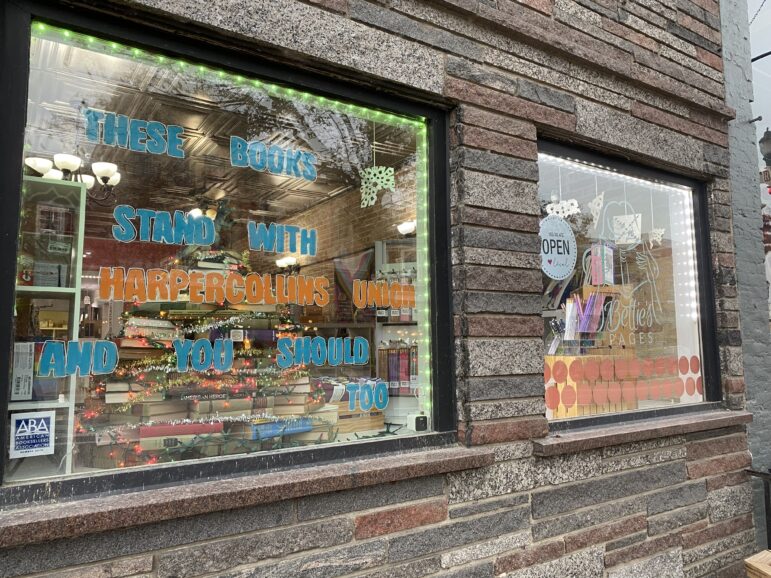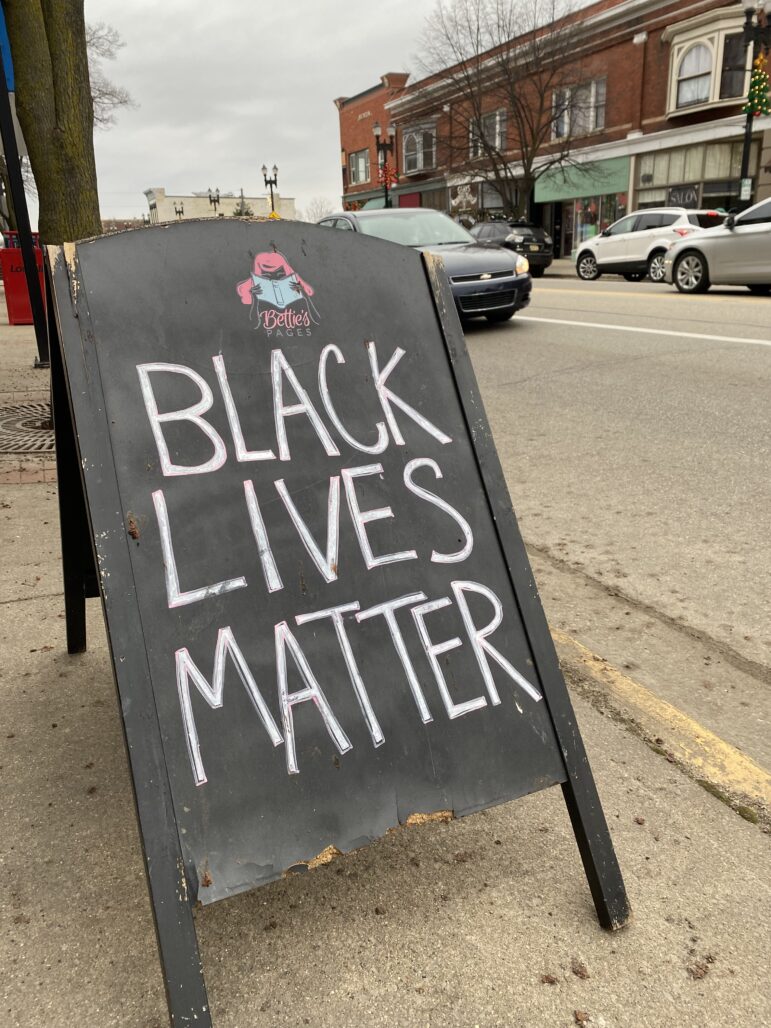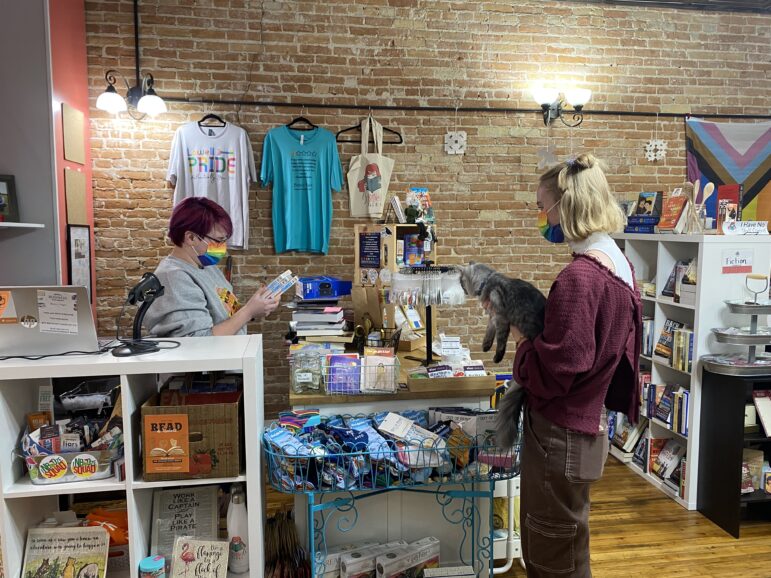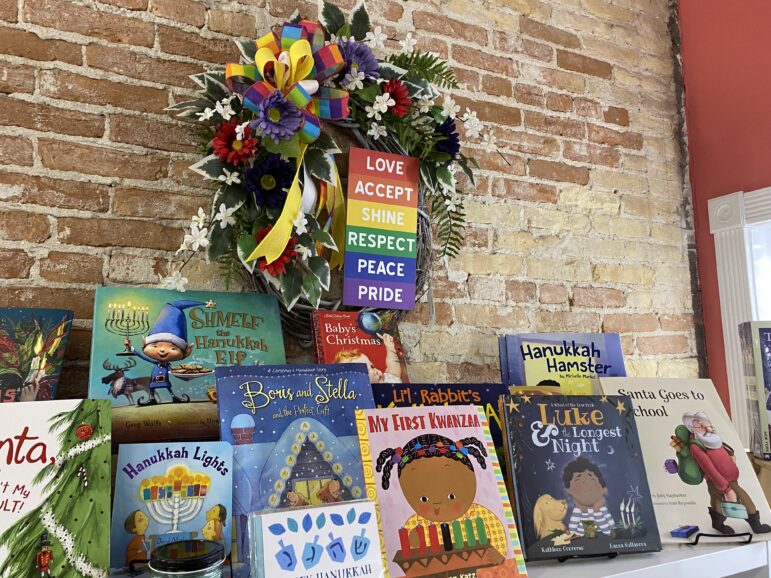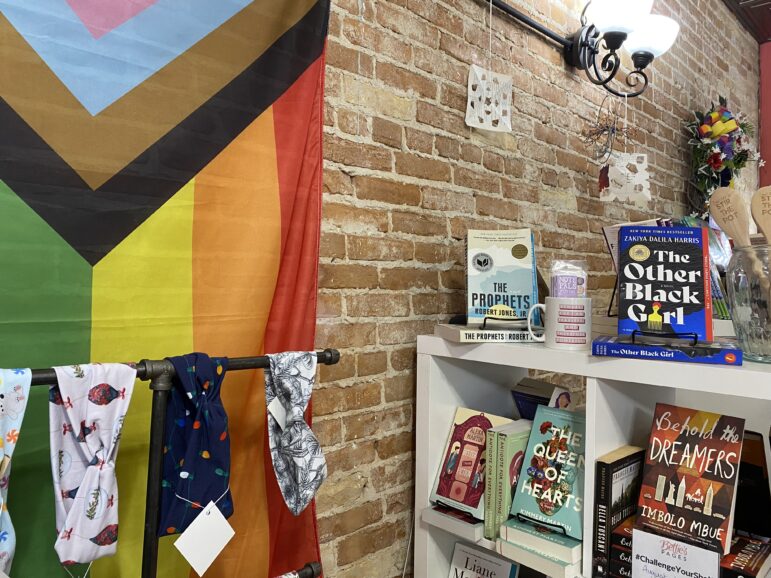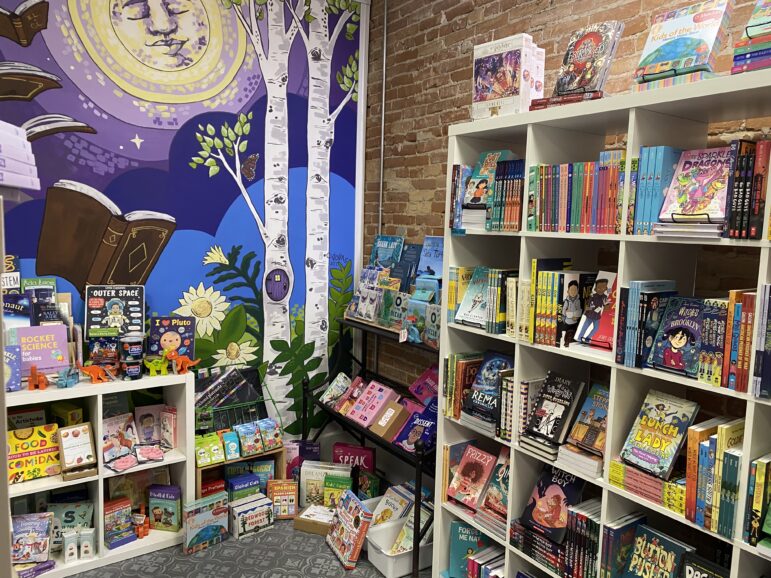Suicide attempts are higher for all age groups, but suicide rates among LGBTQ+ youth are 17% higher than the rest, according to the Centers for Disease Control and Prevention.
In addition to climbing suicide rates, the LGBTQ+ community still faces disparities regarding the law. It was not until 2016 that same-sex marriage was legalized at a federal level. Though marriage equality was a big win for LGBTQ+ people back then, considerable setbacks are being put in motion today.
This year, Florida Gov. Ron DeSantis signed an anti-LGBTQ+ law called the “Parental Rights in Education” bill — better known as the “Don’t Say Gay” bill. This bill restricted LGBTQ+ topics and literature from being taught in public schools. In fact, according to the Movement Advancement Project, many states have policies in place that are considered hateful toward the queer community.
Dr. Kristen Renn is associate dean of undergraduate studies for student success research at Michigan State University. She said research shows that students and adults are healthier when they have “opportunities to self-identify, live their whole truth and explore their identities.”
She said, “It’s true across other categories like race and religion and things, but particularly for LGBTQ+ youth.”
In addition to hostile policies targeting LGBTQ+ people, there has been an increase in violence and hate crimes against them. In 2016, a shooting at Pulse, a gay nightclub in Orlando, killed 49 people. In November, a gunman killed five people and injured dozens more in Colorado Springs at the Club Q nightclub.
From 2013-2017, Renn studied incoming LGBTQIA+ students at Michigan State University. She interviewed the students several times a year for four years. The Pulse nightclub shooting occurred in the middle of this study. She said research shows these events can discourage LGBTQ+ students from searching for support.
“They feel physically threatened,” said Renn, 58. “They feel anxious. Students who are not sure about whether they want to join these kinds of spaces, they become more hesitant to join because it feels riskier.”
According to The Trevor Project, a non-profit organization that focuses on suicide prevention in LGBTQ+ youth, in 2021, nearly half of that population in the United States wanted to receive mental health counseling but did not. The Trevor Project also said queer-identifying youth are less likely to reach out than others for help with mental health.
To combat the stigma of asking for help, Michigan State University College of Education student Ashley Allison said she creates lesson plans that reflect her students. She said this helps them feel more comfortable asking questions because they see people like themselves.
Allison, a student teacher at Everett High School in Lansing, said, “In general, there is a lot of distortion in how people view LGBTQ+ students. There is resistance in allowing students to be independent and make their own decisions. Student success comes down to actually treating them like human beings.”
Attacks, answers are increasingly local
Progressive literature containing topics such as queer or race-related issues is being banned at the local level in public schools and libraries. Some are portrayed as giving parents more rights over their children’s education. For example, “Lawn Boy” by Jonathan Evison, a semi-autobiographical coming-of-age novel that follows the journey of a young Mexican American man, was one of 52 books banned from the largest public school system in Utah, Alpine School District.
Owner of Bettie’s Pages, Nicole Lintemuth, said she wanted to provide a safe space within her bookshop for queer individuals to be able to seek comfort through literature as they experience the societal backlash that comes with being queer in a conservative community. As a queer-identifying woman, Lintemuth said she understands there is a dire need to make safe spaces visible to queer youth.
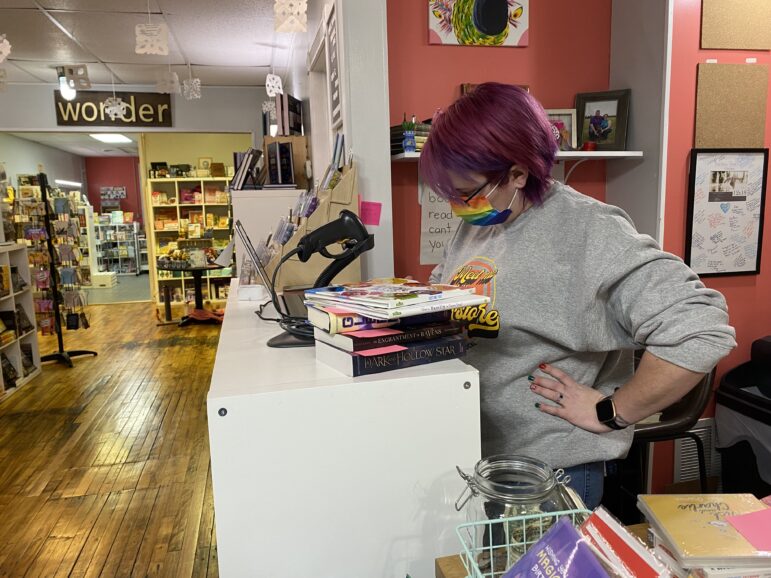
Jacob Seiler
Bettie’s Pages owner Nicole Lintemuth takes inventory of new arrivals before putting them on the shelves.“I don’t think that there’s anything that really ever replaces that in-person connection that people can have,” said Lintemuth, 35. “Having a space where they can go, they can be themselves and they can hold their girlfriend’s hand. They know that they’re going to have their pronouns respected and they’re going to see an adult who’s happy, healthy, successful and queer all at the same time.”
Higher education institutions are also adopting programs to help LGBTQ+ students feel welcomed and safe.
Student-led organizations offer safe spaces for queer youth on Michigan State University’s campus. The Gender and Sexuality Campus Center remains the largest university-funded safe space for LGBTQ+ individuals. Dasianay Ward is the MSU Gender and Sexuality Campus Center undergraduate social work intern. She facilitates discussion groups for queer and transgender students of color and said she feels strongly about making everyone feel comfortable with their identities.
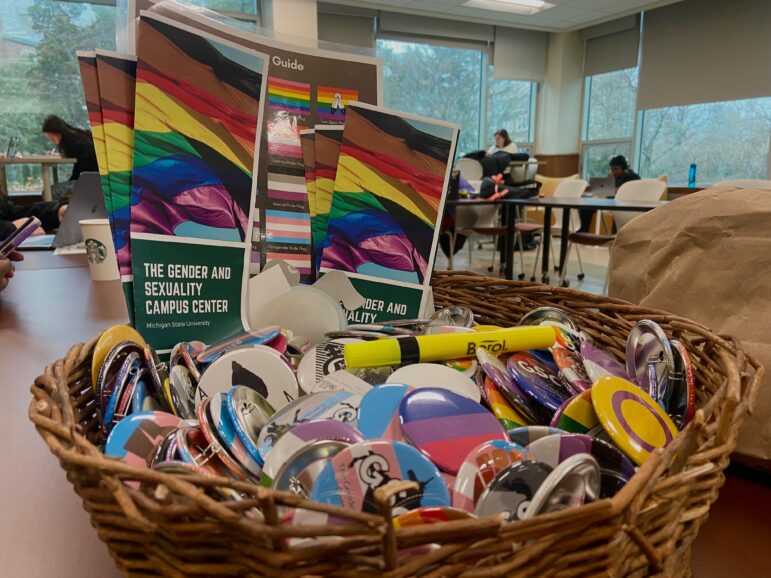
Delaney Rogers
A basket of informational pamphlets and pins welcomes students as the MSU Gender and Sexuality Campus Center hosts a finals week study group.Ward, 21, said, “I think it’s important to have safe spaces for queer and trans students on campus because everyone deserves to feel empowered in their identities, and feel like they have a sense of community. Everyone else on campus is allowed to find community, and often queer and trans students feel isolated on campus. Issues that pertain to the LGBTQ+ community aren’t really discussed on a big level at the university, so it’s definitely important to have these spaces where students know that someone actually cares about them, someone cares about their identity, someone wants to share joy with them and someone wants to empower them in their identities.”
Advancing to create a brighter future
Being the largest campus resource for LGBTQ+ students, MSU’s Gender and Sexuality Campus Center houses the best and safest option for support. The center offers workshops, online support forms, a weekly newsletter and CAPS counselors every Tuesday. For information about the resources available, visit its website.
“I think what I’m seeing is more acceptance that it’s OK to talk about it and maybe the pandemic brought some of that forward for them,” said Renn. “I’m hoping to keep some of that humanity in our work in universities and schools. Once the pandemic is over, I hope that we don’t forget that there was this time we remembered to be humane.”
